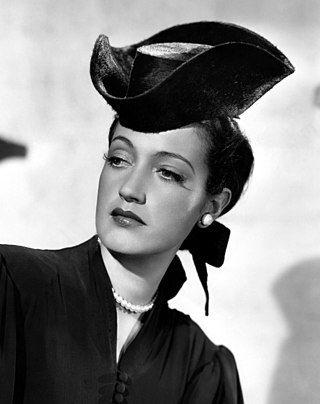
Dorothy Lamour was an American actress and singer. She is best remembered for having appeared in the Road to... movies, a series of successful comedies starring Bing Crosby and Bob Hope.

Jane Darwell was an American actress of stage, film, and television. With appearances in more than 100 major movies spanning half a century, Darwell is perhaps best remembered for her poignant portrayal of the matriarch and leader of the Joad family in the film adaptation of John Steinbeck's The Grapes of Wrath, for which she received the Academy Award for Best Supporting Actress. She has a star on the Hollywood Walk of Fame.
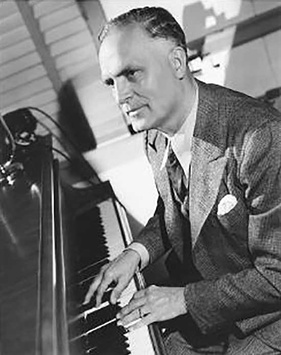
Ralph Rainger was an American composer of popular music principally for films.

Stuart Erwin was an American actor of stage, film, and television.

The Big Broadcast of 1938 is a Paramount Pictures musical comedy film starring W. C. Fields and featuring Bob Hope. Directed by Mitchell Leisen, the film is the last in a series of Big Broadcast movies that were variety show anthologies. This film featured the debut of Hope's signature song, "Thanks for the Memory" by Ralph Rainger.
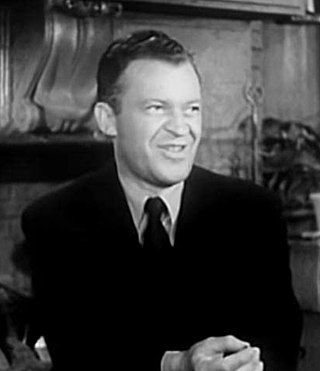
Frank Jenks was an American actor and vaudevillian.

The Big Broadcast of 1936 is a 1935 American comedy film directed by Norman Taurog, and is the second in the series of Big Broadcast movies. The musical comedy starred Jack Oakie, Bing Crosby, George Burns, Gracie Allen, Ethel Merman, The Nicholas Brothers, Lyda Roberti, Wendy Barrie, Mary Boland, Charlie Ruggles, Akim Tamiroff, Amos 'n' Andy, Bill "Bojangles" Robinson, and Argentinian tango singer Carlos Gardel.

Dennis Morgan was an American actor-singer. He used the acting pseudonym Richard Stanley before adopting the name under which he gained his greatest fame.

Marjorie Augusta Gateson was an American stage and film actress.

Slim Summerville was an American film actor and director best known for his work in comedies.
"Two Sleepy People" is a song written on September 10, 1938 by Hoagy Carmichael with lyrics by Frank Loesser.

Olin Ross Howland was an American film and theatre actor.

Edgar Warren Hymer was an American theatre and film actor.

Thanks for the Memory is a 1938 film directed by George Archainbaud and starring Bob Hope and Shirley Ross. The picture was adapted from the play by Albert Hackett and Frances Goodrich. The film is a remake of Up Pops the Devil (1931) starring Carole Lombard and Norman Foster. The titular song, "Thanks for the Memory", remained Bob Hope's theme song for the rest of his long and successful career.

This is a selection of films and television appearances by British-American comedian and actor Bob Hope (1903-2003). Hope, a former boxer, began his acting career in 1925 in various vaudeville acts and stage performances
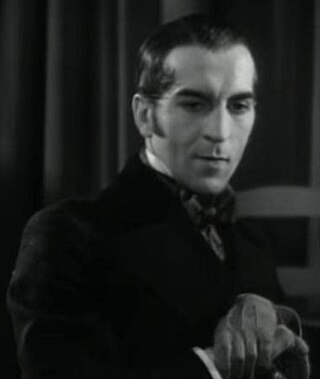
Ralf Harolde was an American character actor who often played gangsters. Between 1920 and 1963, he appeared in 99 films, including Smart Money with Edward G. Robinson and James Cagney, Jimmy the Gent with James Cagney and Bette Davis, Night Nurse with Barbara Stanwyck and Clark Gable, I'm No Angel with Mae West, Baby Take a Bow with Shirley Temple, A Tale of Two Cities with Ronald Colman, Our Relations with Laurel and Hardy, and Murder, My Sweet with Dick Powell.

Georgiana Caine was an American actress who performed both on Broadway and in more than 80 films in her 51-year career.

Esther Dale was an American actress of the stage and screen.
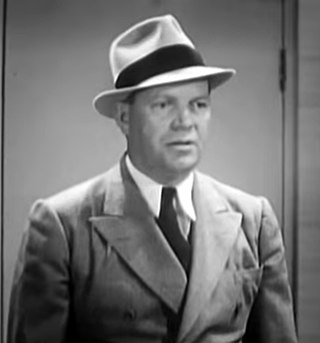
John F. Kelly was an American actor whose career spanned the very end of the silent film era through the 1940s. While most of his parts were smaller, often-uncredited roles, he was occasionally given a more substantial supporting or even featured role.

Lillian "Billie" Yarbo was an American stage and screen actress, dancer, and singer.


















